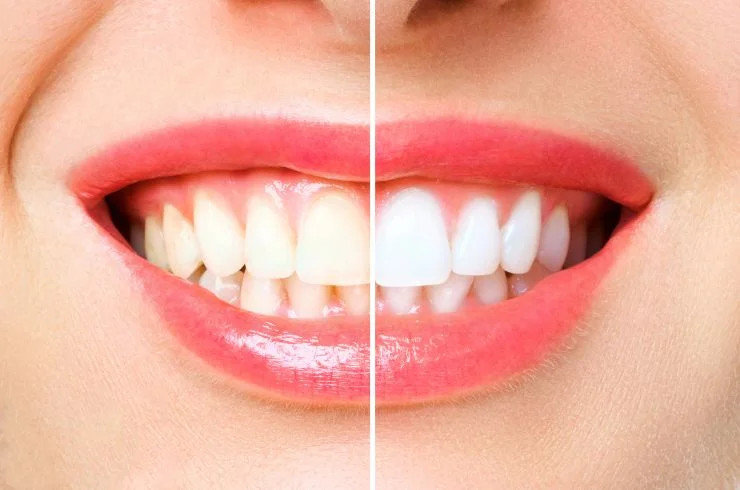
What is Teeth Whitening?
Teeth whitening is a cosmetic dental procedure aimed at lightening the color of teeth and removing stains and discoloration. This treatment can enhance the brightness of the smile, helping individuals achieve a more youthful and confident appearance. Teeth whitening can be performed at home or in a dental office, with various methods available to suit different needs and preferences.
Types of Teeth Whitening
In-Office Whitening: This professional treatment involves the application of a high-concentration bleaching agent by a dentist. The procedure typically takes about an hour and can lighten teeth several shades in a single visit. In-office whitening often uses advanced technologies, such as LED lights or lasers, to enhance the effectiveness of the whitening agent.
At-Home Whitening Kits: These kits, provided by dentists or available over-the-counter, include lower-concentration bleaching agents in the form of trays, strips, or gels. At-home kits require consistent use over a few days or weeks, allowing patients to gradually achieve the desired results.
Whitening Toothpastes: Some toothpaste formulations contain mild abrasives and chemical agents that help remove surface stains. While they can enhance the brightness of teeth, they are generally less effective for deeper discoloration.
Benefits of Teeth Whitening
Who Should Consider Teeth Whitening?
Teeth whitening is suitable for individuals looking to address tooth discoloration caused by factors such as aging, consumption of staining substances (like coffee, tea, or red wine), smoking, or certain medications. However, it may not be recommended for everyone. Patients with sensitive teeth, gum disease, or certain dental restorations should consult with their dentist before undergoing whitening treatments.
Considerations and Aftercare
Teeth whitening can be an effective way to enhance one’s smile, providing a brighter, more vibrant appearance and positively impacting overall confidence.